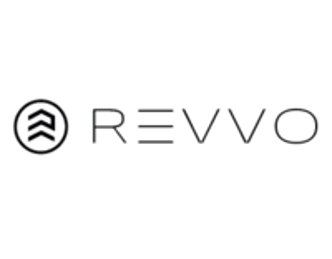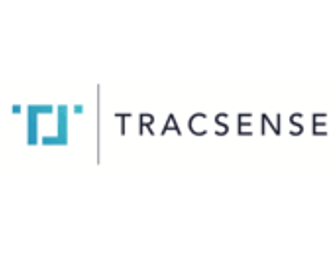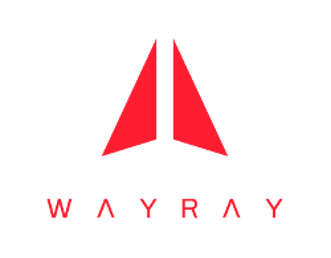123Fab #47
1 topic, 2 key figures, 3 startups to draw inspiration from

Connectivity is booming in the automotive industry. Today, the average high-end car uses seven times more code than a Boeing 747. With parking assistance, GPS, music applications, and more, OEMs (Original Equipment Manufacturers) and Tier-1 suppliers have rushed into the quest for connectivity. They have begun to integrate high-end electronics into privileged parts of the car, near the engine or infotainment systems, away from extreme outdoor conditions. As the value of data-driven services increases, even suppliers of initially “dumb” components – especially those that work at the junction between the outside world and the car (tires, windshields, bumpers…) – are exploring ways to connect their products. A series of solutions are being tested to resist commoditization, increase their service offering and better understand driving behavior.
Smart tires
Tires are one of the most battered parts of the car. They have to withstand high pressure, impact, a wide range of temperatures, road friction, etc. As a result, they are one of the most difficult automotive parts to equip with energy self-sufficient electronic systems. Although these stringent specifications have led to a delay in the adoption of connected tires, solutions are emerging to collect and use data. For instance, Revvo offers a remote tire management solution for fleet owners. Using sensors, they provide tire condition information in real-time. This information is analyzed via cloud computing to gain insight into behaviors that affect the life of the tire and estimate when it will need to be changed to avoid unexpected failure. Other startups, such as Tracsense, use car-mounted optical sensors to analyze the tire’s surface and feed the information into cloud-enabled machine learning models to assess road friction and infer on the next mile friction. This provides hyper-local information enabling precise road prediction forecasts.
Major corporates players have developed their own connected tires to keep up with the data race. In 2018, Michelin announced Track connect, a set of sensors designed for circuit racers that monitors tire pressure and temperature. A year later, Bridgestone announced its sensor technology for autonomous vehicles that estimates wheel axle load and tire wear condition. Also, in 2019, Pirelli developed a tire that interacts with the 5G network for V2X, feeding real-time road condition information and potential hazards such as aquaplaning.
Smart windows and windshields
Car windshields, roofs and windows are also likely to become connected. Gauzy already provides smart glass to car manufacturers, enabling dynamic light shading, temperature control, and transparent information display on them. Other companies offer Heads-Up Displays (HDU) on windshields: WayRay and Futurus provide immersive holographic augmented reality displays, projecting all sorts of information on the windshield, such as directions, potential danger zones, highlighting pedestrians and moving objects to avoid collisions. Last year Gauzy got funds from Hyundai to extend product reach and Futurus announced a partnership with BMW, while in 2018 Porsche and Hyundai invested in Round C financing of WayRay.
In the automotive glass industry, corporates are also trying to offer connected capabilities in their products to create differentiated offers. Major players like ACG glass propose the integration of antennas within the windshield to improve connectivity, as well as energy-efficient glass to reduce the need for AC. AGC glass has also developed a type of glass that does not interfere with LIDAR waves used by autonomous cars to detect their surroundings, allowing the LIDAR sensor to be inside the car, protected from the exterior.
In short, these technologies have attracted the interest of automotive OEMs and many of them will most likely develop high-end cars in the coming years. The main questions that remain are their adaptability to large-scale production, their energy consumption and the computational cost it requires. In any case, in tomorrow’s vehicle, whether it’s AI-assisted driving or fully autonomous, connectivity will be central and competition will be fierce.
2 Key Figures
514 connected car startups
registered by Tracxn
Connected cars market expected to reach $48.8 Bn by 2027
The connected cars market was estimated at $14.3 Bn in 2019 and is expected to reach $48.8Bn by 2027, at a CAGR of 26.3%
3 startups to draw inspiration from
This week, we identified three startups that we can draw inspiration from: Revvo, Tracsense and WayRay.

Revvo
Founded in 2018 in the US, Revvo developed smart sensors vehicle tires designed to monitor tires while a vehicle is on the road. The company’s tires include proprietary sensors and powered by artificial intelligence that is embedded inside the tire, which generate a real-time feed of a tire’s condition and performance which is sent to the cloud via an application on the driver’s phone, enabling drivers to predict tire health, thereby improving vehicle safety and performance.

Tracsense
Tracsense developed an automotive technology intended to make slippery roads visible to self-driving cars. The company’s technology is supported by machine learning, cloud technology and an optical sensor solution that can determine the road friction with record accuracy, enabling customers to make autonomous driving possible in all weather conditions.

WayRay
Based in Zurich, WayRay developed of holographic augmented reality (AR) navigation systems designed to improve safety while driving a car. The company’s holographic AR navigation systems provide full-color heads-up displays in a car windshield and offers wide viewing angles while requiring less space for hardware and control systems, enabling car drivers to look through data in their windshields without looking down at gauges watching road conditions.

